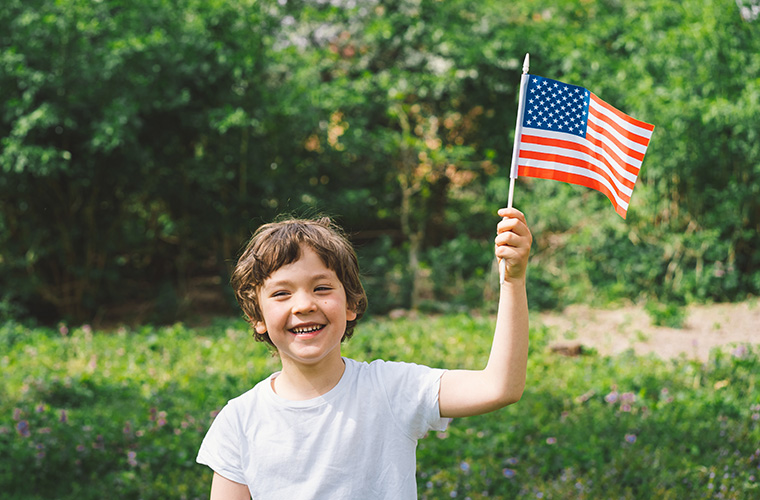10 Fireworks Safety Tips for Families

Fireworks are a fun way to make any celebration a spectacular event, and have long been a popular part of Independence Day festivities. While they are a festive way to light up the night on the Fourth of July, it’s important to remember to use caution when using personal fireworks.
“Fireworks, including sparklers and flares, can cause serious burns as well as blast injuries that can permanently impair vision and hearing,” said BayCare Kids Wellness and Safety Specialist Gina Baez.
Each year, mostly within a few weeks of the Fourth of July, more than 3,000 children under the age of 15 are treated in emergency departments for injuries resulting from fireworks. Children ages 5 to 9 are at the highest risk for fireworks-related injuries, and firecrackers and bottle rockets cause the most injuries to children in this age group. Children ages 4 and under are at the highest risk for sparkler-related injuries.
While sparklers are seen by some parents as the safer choice, the tip of a sparkler can heat up to as high as 1,200 °F, which is hot enough to cause third degree burns. Baez suggests letting young children use glow sticks instead. They can be just as fun, but they don’t burn at a temperature hot enough to melt glass.
“If you choose to use fireworks at home, supervision is key,” Baez said. “Children should be in sight and in reach at all times when they are near fireworks.”
Additional precautions include:
- Light fireworks only on smooth, flat surfaces
- Point fireworks away from buildings, bushes, dry leaves and flammable materials
- Never point or throw fireworks at another person or animal
- Do not try to relight fireworks that malfunction
- Always have a bucket of water and/or a fire extinguisher nearby
- Do not carry fireworks in your pocket or hold them close to your face
- Explain to children who may be experiencing fireworks for the first time they will hear loud noises and see bright lights to ease any fears
- Use glow sticks or bubbles as substitute for sparklers
- Never modify fireworks or use homemade fireworks
- Keep your phone handy, and know first aid for burns. Also, keep a fire extinguisher handy and know how to use it.
Baez adds that the best way to keep your family safe is to watch a public fireworks display. By leaving the lighting to the pros, all you have to do is enjoy the show.
For more tips on how to keep your children healthy and safe, visit BayCare Kids.
